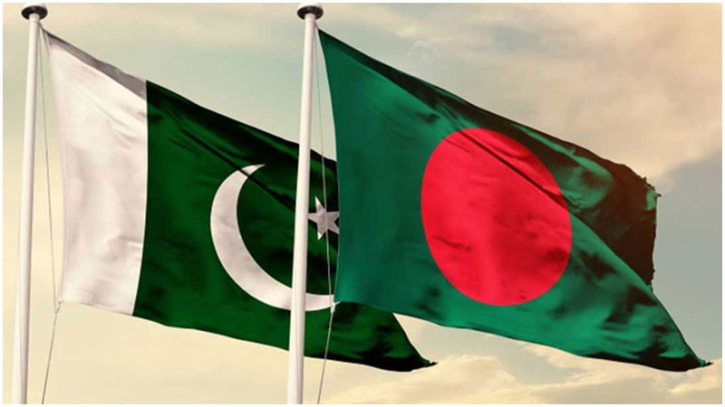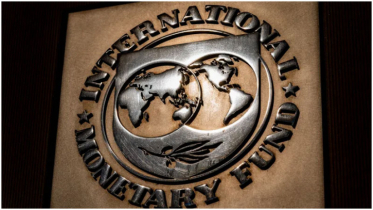A Pakistani–Bangladeshi Reset?

In February 2025, Pakistani Minister of Foreign Affairs Muhammad Ishaq Dar is set to visit Bangladesh—the first visit by a Pakistani foreign minister since 2012. Since the July Uprising of 2024, there has been much speculation in the media and public discourse about a potential renewal of ties between Bangladesh and Pakistan. However, Dhaka must approach its political, military-strategic, economic, and cultural relations with Islamabad with realism, pragmatism, and careful calculation.
The support of Bengali Muslims was crucial to the success of the Pakistan Movement, with leaders such as Abul Kasem Fazlul Haque, Hussein Shahid Suhrawardy, Khawaja Nazimuddin, Muhammad Akram Khan, and Abul Hashim playing key roles in the creation of Pakistan. Between 1947 and 1971, Bangladesh—then known as East Bengal (1947–1955) and later East Pakistan (1955–1971)—formed the eastern wing of Pakistan, home to 56% of the country’s population. Yet political power remained concentrated in the geographically larger but demographically smaller western wing, West Pakistan. Throughout this period, the people of East Bengal/East Pakistan endured systemic discrimination in political, economic, cultural, and military spheres. In 1970, the military-controlled Pakistani government and West Pakistani political elite refused to transfer power to the Awami League, which had won the first general elections of Pakistan.
Instead, on 25 March 1971, the Pakistani government launched Operation Searchlight, a brutal crackdown that triggered the Bangladeshi Liberation War. Pakistani forces carried out mass killings, engaged in widespread sexual violence against Bengali women, and drove some 10 million Bangladeshis to seek refuge in India. Eventually, with significant Indian assistance, the Bangladesh Forces waged a successful insurgency, culminating in the surrender of Pakistani forces in Dhaka on 16 December 1971. Bangladesh thus secured its independence, which Pakistan formally recognised in February 1974.
Post-independence, unresolved issues continued to strain relations. While ties improved somewhat following the coup d’état of 15 August 1975, relations deteriorated again between 2009 and 2024. Over time, the issue of asset division has faded from public discourse, and Bangladesh has granted citizenship to many stranded Pakistanis born after 1971, making repatriation less of a pressing issue. However, the demand for an official apology resurfaces periodically.
Currently, Bangladesh and Pakistan share no territorial disputes, geopolitical rivalries, or major economic competition. The primary point of contention remains the historical legacy of 1971. Since the fall of the Awami League-controlled government on 5 August 2024, calls for increased cooperation between the two states have grown, and both Dhaka and Islamabad have taken steps toward renewed engagement. However, foreign policy should be guided by rational cost-benefit analysis rather than sentiment. Bangladesh must therefore take a measured and strategic approach to its relations with Pakistan.
First, given the new political dynamics, both countries have an opportunity to finally put historical grievances to rest. The Pakistani government should formally acknowledge its role in the atrocities of 1971 and extend a sincere apology to the Bangladeshi people. Instead of framing the war solely in relation to India, Pakistan should confront the injustices that led to Bangladesh’s secession. If such an apology is issued, Bangladesh should accept it with composure and move forward.
Second, while Bangladesh has granted citizenship to many stranded Pakistanis, tens of thousands remain stateless and restricted, with some still wishing to return to Pakistan. Pakistan bears a legal, moral, and humanitarian responsibility to repatriate these individuals. Doing so would not only improve Pakistan’s international image but also remove a longstanding irritant in bilateral relations.
Third, in the wake of the July Uprising of 2024, Bangladesh’s ties with India have deteriorated sharply. In this context, strengthening military-strategic ties with Pakistan—India’s primary rival—may seem like a natural course of action. However, Bangladesh must tread carefully. As a country almost entirely surrounded by India, it cannot afford outright hostility. Economic ties with India remain vital for Bangladesh’s interests, and maintaining security dialogues is crucial for border stability. Additionally, despite common perceptions, in the event of a Bangladesh–India conflict, Pakistan is unlikely to intervene due to its ongoing economic difficulties, the risk of nuclear escalation, and Bangladesh’s limited role in Pakistan’s strategic calculations. A formal military alliance between Bangladesh and Pakistan is thus neither realistic nor beneficial.
That said, the two nations can still pursue military-strategic cooperation short of a formal alliance. Pakistan could serve as a source of weaponry and ammunition, helping Bangladesh diversify its arsenal. Both countries could engage in joint military exercises, establish training programs for each other’s personnel, and share intelligence where mutually beneficial.
Fourth, economic ties remain an area of potential growth. Current Pakistan–Bangladesh trade stands at $782 million, with Pakistan enjoying a significant trade surplus. Recent initiatives, such as the establishment of direct shipping routes, suggest a willingness to expand trade. Dhaka and Islamabad should capitalise on these developments, setting an initial goal of $1 billion in annual trade. Removing unnecessary tariff and non-tariff barriers would facilitate this. Pakistan can provide Bangladesh with raw materials and intermediate goods, while Bangladesh can export products such as jute and pharmaceuticals to Pakistan. Expanding Bangladesh’s export basket would help reduce the trade imbalance.
Finally, cultural and educational exchanges could help bridge historical divisions. Increased student exchange programmes, cultural exhibitions, media exposure, and joint scientific initiatives would foster deeper understanding. Promoting tourism and people-to-people connections would not only yield economic benefits but also help both societies move beyond their complex historical legacies.
For decades, historical tensions have prevented Pakistan and Bangladesh from building a comprehensive and mutually beneficial relationship. The July Uprising has ushered in a new era in Bangladeshi politics, making it imperative for Dhaka to carefully navigate its foreign relations. By addressing historical grievances, forging pragmatic military ties without rigid commitments, and boosting economic and cultural engagement, Bangladesh and Pakistan can establish a practical and mutually advantageous partnership in the near future.
Writer: Md. Himel Rahman, is a Dhaka-based freelance columnist.
Source: The Nation.
.png)




